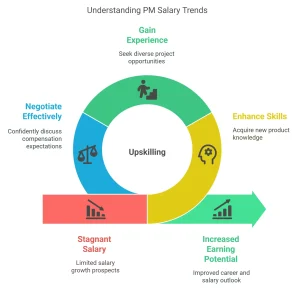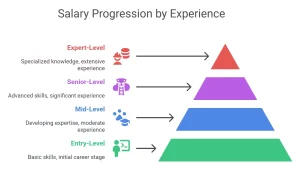Product Manager Salary in India 2026: Complete Guide

Table Of Content
- Product Manager Salary in India
- How to Increase Your Product Manager Salary?
- Final Thoughts
Product Manager Salary in India
Frequently Asked Questions
A Product Owner sets product vision and ensures value delivery, while a Project Manager ensures timelines and execution. Both are crucial, but the Product owner often has a higher salary trajectory due to their strategic role.
Not exactly. A Product Owner influences priorities and guides vision, but doesn’t manage people directly. They collaborate with engineering and design teams for outcomes.
Consultants advise businesses but don’t execute. Product Managers, on the other hand, lead development, manage roadmaps, and ensure delivery. This big responsibility often results in higher compensation.
Beyond MVP and OKRs, PMs rely on RICE, Double Diamond, and Opportunity Solution Trees to make data-driven product decisions.
Find a Program made just for YOU
We'll help you find the right fit for your solution. Let's get you connected with the perfect solution.

Is Your Upskilling Effort worth it?

Are Your Skills Meeting Job Demands?

Experience Lifelong Learning and Connect with Like-minded Professionals



